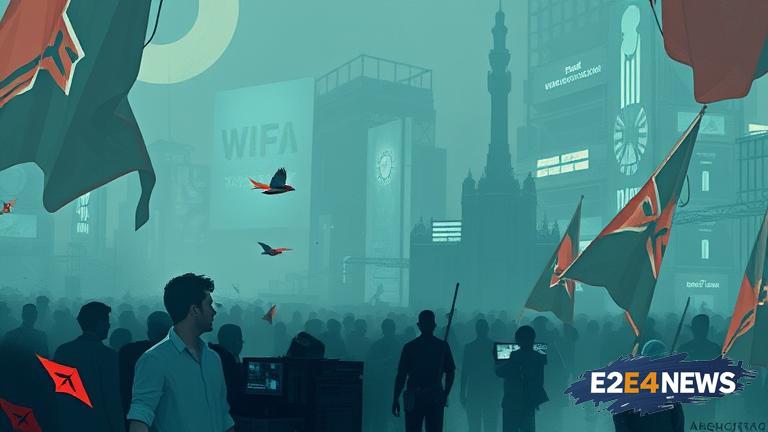In the age of algorithms, the world is witnessing a new form of warfare – one that is fought not with guns and bombs, but with code and censorship. The recent Wi-Fi restrictions imposed by the Indonesian government in West Papua are a stark reminder of the dangers of algorithmic censorship. The move, which aims to curb the spread of ‘fake news’ and ‘separatist’ ideologies, has been met with widespread criticism from human rights groups and activists. They argue that the restrictions are a blatant attempt to stifle the region’s struggle for independence and silence the voices of those who dare to speak out against the government. The Indonesian government has long been accused of human rights abuses in West Papua, and the Wi-Fi restrictions are seen as just another tool in their arsenal of oppression. The algorithmic age has brought about a new era of censorship, where governments can use complex algorithms to monitor and control the flow of information. This has far-reaching implications for the people of West Papua, who rely heavily on the internet to access information and communicate with the outside world. The restrictions have already started to take a toll on the region’s economy, with many businesses and organizations struggling to operate without access to the internet. The Indonesian government’s actions have also sparked concerns over the role of social media companies in perpetuating algorithmic censorship. Many have criticized these companies for their complicity in the Indonesian government’s efforts to silence the people of West Papua. The issue has also highlighted the need for greater transparency and accountability in the development and implementation of algorithms. As the world becomes increasingly reliant on technology, it is essential that we prioritize the protection of human rights and the promotion of freedom of expression. The people of West Papua are not alone in their struggle, as similar battles are being fought in other parts of the world. The use of algorithmic censorship as a tool of oppression is a global phenomenon, and it requires a global response. The international community must come together to condemn the Indonesian government’s actions and demand greater transparency and accountability in the development and implementation of algorithms. The fight for freedom and independence in West Papua is a complex and multifaceted issue, and it will require a sustained and coordinated effort to bring about meaningful change. The algorithmic age has brought about many benefits, but it also poses significant risks to human rights and freedom of expression. As we move forward, it is essential that we prioritize the protection of these fundamental rights and work towards a future where technology is used to empower and liberate, rather than oppress and silence. The people of West Papua will continue to fight for their freedom, and it is our responsibility to support them in their struggle. We must use our voices to raise awareness about the issue and demand action from our governments and social media companies. The time for silence is over, and the time for action is now. The future of West Papua and the future of humanity depend on it. The Indonesian government’s actions are a stark reminder of the dangers of unchecked power and the importance of protecting human rights. The international community must come together to condemn the Indonesian government’s actions and demand greater transparency and accountability in the development and implementation of algorithms. The people of West Papua are not just fighting for their freedom, they are fighting for the freedom of us all. The algorithmic age has brought about a new era of censorship, and it is up to us to ensure that it does not become a tool of oppression. We must work together to create a future where technology is used to empower and liberate, rather than oppress and silence. The fight for freedom and independence in West Papua is a long and difficult one, but with the support of the international community, it is a fight that can be won.
